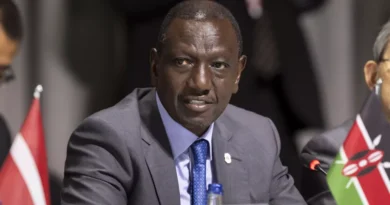Anti-Corruption Commission of Zambia Holds Quarterly Media Briefing to Address Ongoing Efforts
The Anti-Corruption Commission of Zambia convened its third-quarter media briefing to provide insights into the ongoing fight against corruption, underlining the organization’s commitment to promoting good governance, transparency, and accountability within Zambian society.
The Anti-Corruption Commission reiterated its steadfast mission to eliminate corruption from the nation, emphasizing its role in combating and preventing corrupt practices while educating the public about their detrimental consequences.
The Commission expressed a firm resolve to thoroughly investigate and prosecute cases of corruption, ensuring professionalism and impartiality in carrying out its mandate.
Transparency and accountability were highlighted as vital components in the battle against corruption, and the Commission pledged to keep the public informed about its activities and achievements.
Furthermore, the Commission stressed the importance of public involvement in reporting suspected cases of corruption, a key factor in curbing the scourge.
The briefing also addressed the issue of sexual gratification, a form of corrupt practice that has recently come to the forefront, particularly in colleges and higher institutions of learning.
The Commission reported recent arrests of three lecturers at the Copperbelt University in connection with this crime and expressed its determination to fight this immoral practice. The Commission called on victims to report such corrupt practices without fear.
Regarding the latest Auditor General’s report for the 2022 Financial Year, which showed a reduction in cases involving misappropriation of funds, the Commission acknowledged the measures taken to seal resource leakages.
It emphasized the importance of strengthening Integrity Committees in public institutions to reduce audit queries.
The Commission also provided statistics on its investigations over the past two years, highlighting an increased number of corruption cases involving officials in the former government administration.
In addition to its investigative and prosecutorial efforts, the Commission plays a crucial role in corruption prevention, actively engaging with public and private institutions to promote ethical conduct and accountability.
The Commission established new Integrity Committees, conducted trainings, and participated in various selection committees to enhance transparency.
The briefing concluded with a focus on public awareness activities, investigations and prosecutions, and the Commission’s unwavering commitment to its mandate.
As Zambia strives for a corruption-free future, the Anti-Corruption Commission remains dedicated to its mission and encourages public vigilance in reporting any instances of corruption to safeguard the nation’s resources and support economic development.



